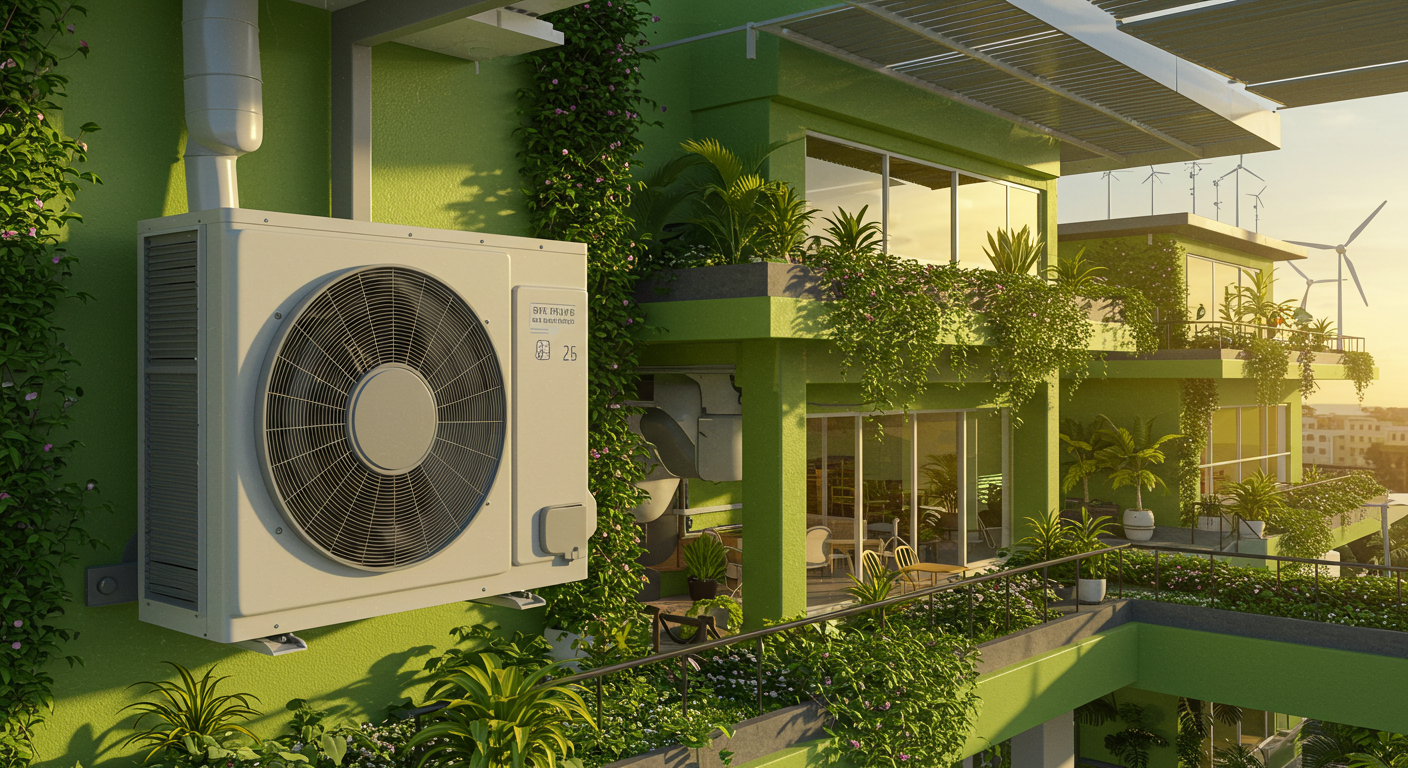
How HVAC Contractors Can Support Net-Zero Buildings
In the drive towards sustainability, net-zero buildings have become a focal point of innovation and strategy. As an HVAC contractor, you play a pivotal role in helping these structures achieve their energy goals. With HVAC systems accounting for approximately 40% of energy usage in commercial buildings, your expertise is crucial in optimizing performance and efficiency. This post explores how you can contribute to the success of net-zero buildings and make a significant impact on the environment.
Understanding Net-Zero HVAC Solutions
Net-zero buildings aim to produce as much energy as they consume, and HVAC systems are the linchpin of this balance. By focusing on energy-efficient HVAC systems and integrating renewable energy sources, you can help reduce the energy footprint of these buildings. Ground-source heat pumps (GSHPs) are particularly effective, with performance coefficients between 4.8 and 6.1, far surpassing standard air-source heat pumps.
Smart Technologies and Eco-Friendly Refrigerants
Smart HVAC technologies are revolutionizing the way buildings manage energy, leveraging IoT, AI, and advanced sensors to dynamically optimize usage. These systems not only reduce costs but also align with sustainability goals. Additionally, the shift towards eco-friendly refrigerants is crucial. Brands like Daikin offer climate-responsible solutions with low-GWP refrigerants, ensuring compliance with the latest regulations.
Renewable Energy Integration
The integration of renewable energy sources such as solar and geothermal is accelerating in the HVAC sector. This trend is critical for decarbonization, with the global solar air conditioning market projected to reach USD 8 billion by 2032. As a contractor, understanding and implementing these technologies is essential for supporting net-zero projects.
Key Takeaways for HVAC Contractors
- Prioritize high-performance HVAC systems with high SEER ratings.
- Adopt smart technologies for real-time energy optimization.
- Transition to eco-friendly refrigerants in compliance with regulations.
- Integrate renewable energy sources to support sustainable buildings.
- Stay informed about market trends and technological advancements.
Conclusion
As the demand for sustainable buildings grows, HVAC contractors have a unique opportunity to lead the charge in energy efficiency and innovation. By embracing advanced technologies and eco-friendly practices, you can contribute to a greener future and strengthen your position in the market.
Ready to make a difference? Start implementing these strategies today to support the transition to net-zero buildings.
FAQ
What are net-zero HVAC solutions?
Net-zero HVAC solutions are systems designed to minimize energy consumption while maximizing efficiency, helping buildings achieve a balance between energy production and usage.
How do smart HVAC technologies contribute to net-zero buildings?
Smart HVAC technologies use IoT, AI, and sensors to dynamically adjust energy use, improving efficiency and supporting sustainability goals.
What role do eco-friendly refrigerants play in sustainable HVAC systems?
Eco-friendly refrigerants reduce environmental impact and comply with regulations, making them a key component of green building HVAC services.
How can HVAC contractors integrate renewable energy into their projects?
Contractors can integrate renewable energy by incorporating solar or geothermal technologies, which reduce reliance on non-renewable energy sources.
Why is energy efficiency important for HVAC systems in net-zero buildings?
Energy efficiency is crucial because it helps reduce overall energy consumption, allowing buildings to meet net-zero goals more effectively.

